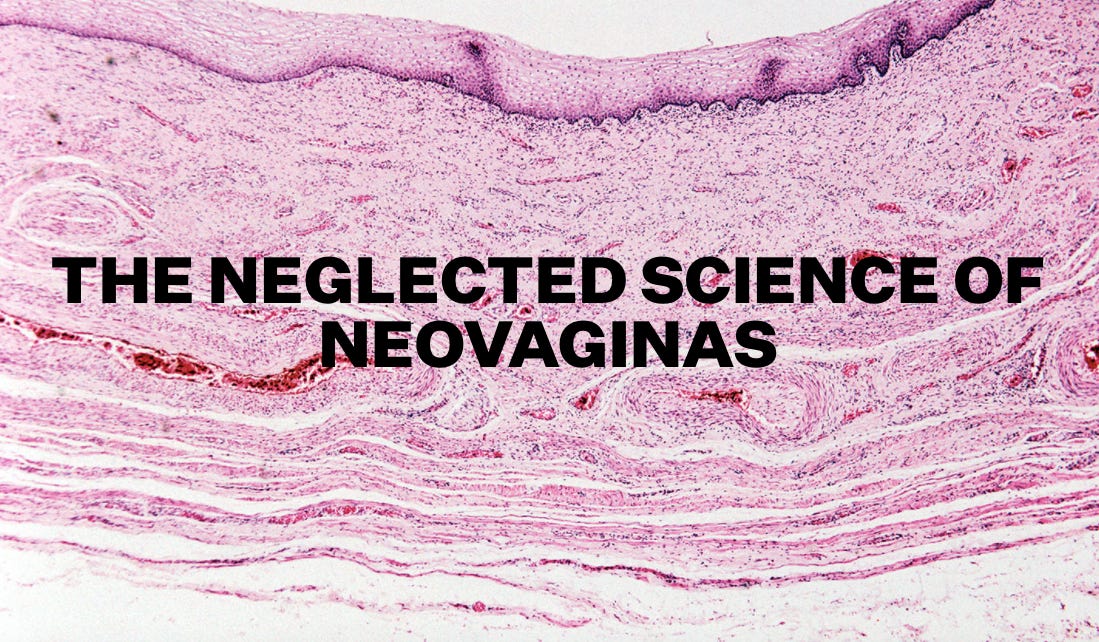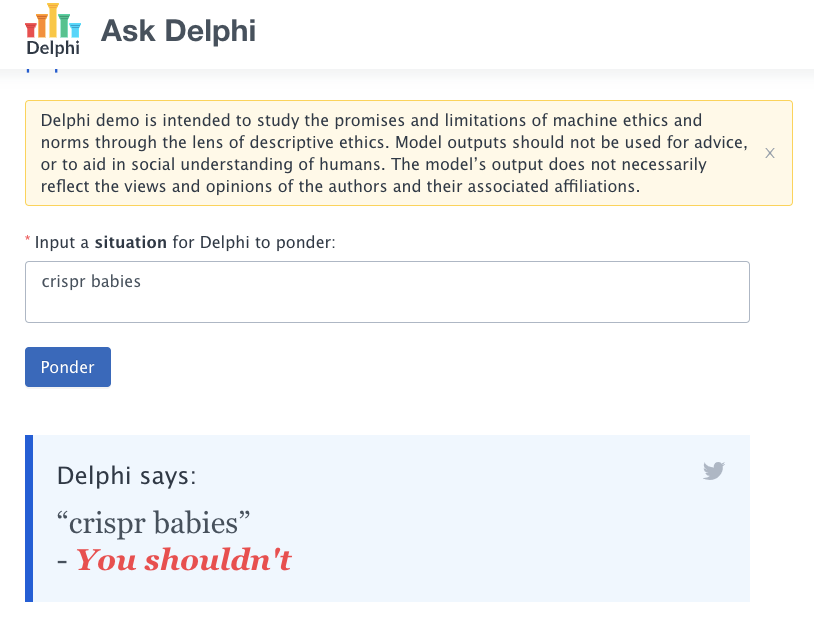A fun AI turned out to be a racist—again!
Plus, neovaginas, biomaterials, and a personal stake in genetic testing.
Give the gift of email! SD&B is a curated collection of analysis and commentary on the latest in synbio, pharma, and health policy. Subscribe a friend and get 15% off as well as a personalized card for the holiday of your choice. Just let me know who to send it to! 💜
I love the time between Halloween and Thanksgiving and the crispness in the air. There are three weeks where it seems everyone gets a little taste of the season, even if it’s just for a day or two. Here in Santa Monica, CA, there has been a perpetual fog cloud upon us for three days, allowing me to finally don my favorite leather jacket and pretend that I’m walking around my beloved neighborhood in Islington, North London. (The ultimate in autumnal moodiness.)
For me, this autumn has also been a painful season. My cousin Trevor Jones, 34, died suddenly from complications of Vascular Ehlers-Danlos syndrome, a devastating genetic mutation that seemingly affects about a quarter of my patrilineal grandmother’s relatives and thousands of other people. He left behind hundreds of grieving friends and family, including a loving father, a brilliant sister, a beautiful wife, and an infant daughter. He’s the person who taught me how to fill water balloons and throw them at our elder cousins at summertime family picnics, he was a successful entrepreneur, and he should have had more time.
His loss is a heartbreaking reminder of the importance of developing genetic therapies, mainstreaming genetic testing, and utilizing reproductive healthcare as a means to prevent and treat rare genetic diseases. My cousins believe the disorder comes from our shared great-grandfather, Iser Koslovsky, b. 1897 in Poland. With the advent of genetic testing, in vitro fertilization, and preimplantation genetic screening, we can at least find comfort in the idea that this disease and others can be avoided in future generations. May Trevor’s memory be a blessing, and may we figure out ways to make genetic technologies safe, effective, well-regulated, and widely accessible to families who want to utilize them.
Here’s the latest.
Getting to the bottom of the trans woman neovaginal microbiome
In NEO.LIFE, I wrote about the stunning lack of research into the microbiome of neovaginas, one of many forms of discrimination against trans people in health care. I spoke to mythbusting YouTuber Melody Maia Monet, who told me during our interview about her struggles finding health care and information about her body.
“Our needs aren’t being met,” she said about how trans women’s bodies are neglected by the medical establishment. “It’s endlessly frustrating.”
Read the full article.
Bring on the wood: Biomaterials are our future
Wood is everywhere these days, and many believe it is the sustainable miracle material that could ultimately save us. From this paper in Science that describes a new way to mold complex structures out of wood, to this paper in Cell (and covered in NPR) that highlights a wooden knife sharper than steel, wood is emerging as an obvious, renewable, low-cost replacement for plastic and other materials.
So what’s the problem? I don’t think there is one! Biomaterials research is an interdisciplinary field combining creativity with expertise in nanotechnology, synthetic biology, materials science, product development, and design. With researchers even developing wood-like cells in the lab, the biomaterials market has nowhere to go but up.
Forthcoming Biohack the Planet show has a new teaser
A fun toy turned out to be a racist—again!
It seems even the AI bots that are ethicists end up being racists, according to a report about Delphi, a funny toy I was playing with on the internet last week. The Ask Delphi tool was developed in part to investigate whether a machine could give ethics advice for any given situation. But questions also arose about whether an AI can be taught to have a moral compass. As the paper by Jiang, et al points out, futurist philosophers have long been concerned with the potential for a super-intelligent AI to destroy humanity because of a miscommunication on morality. So these researchers attempted to teach a machine how to behave ethically… by sending it to Reddit. So it became an asshole.
Will we never learn?! 🤦♀️
Genetic testing regulation inching forward
“A growing number of states are adopting genetic privacy laws in an effort to close [regulatory] gaps” for direct-to-consumer genetic testing products, according to Emily Mullin’s latest reporting in Wired. But, there’s still a long way to go. Luckily the experts are on it! Check out the work in the newly released volume, Consumer Genetic Technologies: Ethical and Legal Considerations, from my former health law policy colleagues at the HLS Petrie-Flom Center. The book contains papers from the 2019 conference of the same name, which featured talks on law enforcement use of genetic databases, governance of DIYbio and Crispr technologies, and more.
Getting rich off Covid is not a good look for Moderna. Stat
This iGEM team made a diagnostic for sepsis! iGEM
Are slime molds the smartest plants? Orion magazine
Stanford neurosurgeon Jaimie Henderson, co-leader of BrainGate, discussing the ethics of therapy vs. enhancement in the brain implant sector in the MIT Technology Review.
In some fun news, I was thrilled to be asked to join the mod team for The Ethics Club, a weekly conversation on Clubhouse facilitated by some of the best and brightest working mamas in the business. Recent topics have ranged from leaps in xenotransplantation 🐷, to the definition of brain death 💀, to what the Britney Spears conservatorship means for patient autonomy 💃.
Join us on Wednesdays at 2 pm PT/5 pm ET on Clubhouse. Do you need an invite? Reply to this email and let me know!




